DONNY HATHAWAY / “Young, Gifted and Black”
The state of hip hop is confused and desperate like black people; solutions must come from us. So-called artists need to be artists and not whores for music executives. —Weldon Irvine
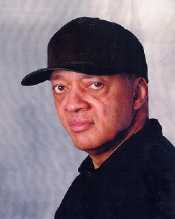 Weldon Irvine. Master Weldon. Of course, there is a story behind my opening with his quote. Weldon committed suicide. A few years back.
I met him once, in Madison, Wisconsin. We were both at a hip hop conference. Both of us over fifty. Hanging out with the young folk. After one of the sessions we were walking leisurely back to where we were staying. As we passed through the lobby there was a piano. Weldon sat at it, just to try out the keyboard action. He pushed over. I sat next to him.
Weldon played mostly post-bop tunes. I think a Horace Silver number, maybe “Nica’s Dream.” A Monk tune. Some standards, and I was humming along when I knew the tune, when I didn’t, I fell silent. Weldom looked over towards me at one point, smiled, and said how he liked it that I didn’t try to fake it.
But who would try to fake a master? Certainly not me, especially after he told me about writing the lyrics for “Young, Gifted and Black.” I knew he had been a musical director for Nina, and I kind of assumed that he had done the music and she had done the lyrics, but that’s not the way it was. Weldon was seriously gifted.
And very sensitive. A quiet man. Not given to bragging or boasting, or even claiming all the accolades he deserved. when I heard about his death, I could feel the possibility that he was not able to deal with where we are at today, especially after coming through the Sixties working with Nina.
This song is seen as the anthem of its era, but there is something more. The song overtly focuses on young people. Weldon’s last recording included collaborations with a number of young artists.
I’m sure the way commercial rap dominated the music scene did not bring joy to Weldon.
Here he had written a song which was successfully covered first by Aretha and second by Donny Hathaway, plus international covers, and the original performed by Nina Simone. That alone is enough to insure greatness for the average musical career.
Weldon Irvine. Master Weldon. Of course, there is a story behind my opening with his quote. Weldon committed suicide. A few years back.
I met him once, in Madison, Wisconsin. We were both at a hip hop conference. Both of us over fifty. Hanging out with the young folk. After one of the sessions we were walking leisurely back to where we were staying. As we passed through the lobby there was a piano. Weldon sat at it, just to try out the keyboard action. He pushed over. I sat next to him.
Weldon played mostly post-bop tunes. I think a Horace Silver number, maybe “Nica’s Dream.” A Monk tune. Some standards, and I was humming along when I knew the tune, when I didn’t, I fell silent. Weldom looked over towards me at one point, smiled, and said how he liked it that I didn’t try to fake it.
But who would try to fake a master? Certainly not me, especially after he told me about writing the lyrics for “Young, Gifted and Black.” I knew he had been a musical director for Nina, and I kind of assumed that he had done the music and she had done the lyrics, but that’s not the way it was. Weldon was seriously gifted.
And very sensitive. A quiet man. Not given to bragging or boasting, or even claiming all the accolades he deserved. when I heard about his death, I could feel the possibility that he was not able to deal with where we are at today, especially after coming through the Sixties working with Nina.
This song is seen as the anthem of its era, but there is something more. The song overtly focuses on young people. Weldon’s last recording included collaborations with a number of young artists.
I’m sure the way commercial rap dominated the music scene did not bring joy to Weldon.
Here he had written a song which was successfully covered first by Aretha and second by Donny Hathaway, plus international covers, and the original performed by Nina Simone. That alone is enough to insure greatness for the average musical career.
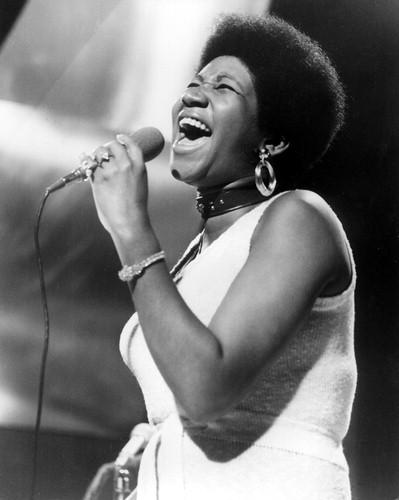 Both Aretha and Donny approached the song with a church treatment. Aretha’s version is strongly reflective of her gospel roots in the way she uses a rubato, lining out the verses approach. The organ/piano duo accompaniment. The worrying of the notes, that quiver in the back of the mouth. The full throated shouting. And of course that rock steady bass in the out choruses with Aretha rising above.
Both Aretha and Donny approached the song with a church treatment. Aretha’s version is strongly reflective of her gospel roots in the way she uses a rubato, lining out the verses approach. The organ/piano duo accompaniment. The worrying of the notes, that quiver in the back of the mouth. The full throated shouting. And of course that rock steady bass in the out choruses with Aretha rising above.
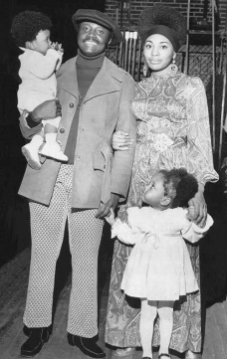 Donny was a bit more stately, not just a minister, a full fledged bishop. Where Aretha had shouts, Donny has moans and hums. And though the church influences are unmistakable, there is also a strong jazz element in the way he voices the changes, plus a strong helping of the blues undergirding his vocal inflections and the drama of the musical arrangements. Listen to how far forward the drum kit is in the mix. And when the chorus comes in, it’s a wall of sound. While Aretha is the stronger singer, Donny has a stronger arrangement and a better production mix.
Donny was a bit more stately, not just a minister, a full fledged bishop. Where Aretha had shouts, Donny has moans and hums. And though the church influences are unmistakable, there is also a strong jazz element in the way he voices the changes, plus a strong helping of the blues undergirding his vocal inflections and the drama of the musical arrangements. Listen to how far forward the drum kit is in the mix. And when the chorus comes in, it’s a wall of sound. While Aretha is the stronger singer, Donny has a stronger arrangement and a better production mix.
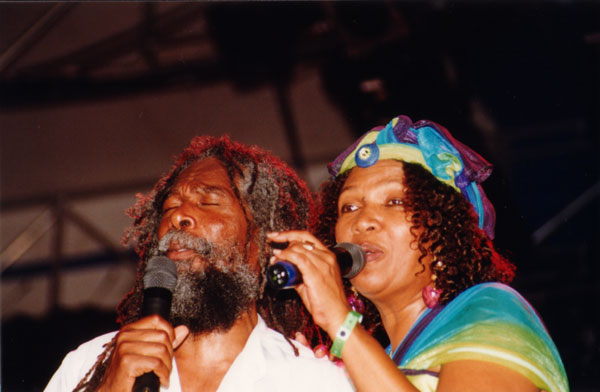 The Bob & Marcia duo is Bob Andy and Marcia Griffins (later of I-Threes fame). Their version was the first of what would be numerous hits both in Jamaica and internationally. This is a pre-roots-reggae, heavily ska-influenced 1961 version. And though the song undeniably sounds dated, there is an optimism bursting forth in their interpretation, which is much lighter and far more bubbly than either Aretha, Donny or Nina’s version.
The Bob & Marcia duo is Bob Andy and Marcia Griffins (later of I-Threes fame). Their version was the first of what would be numerous hits both in Jamaica and internationally. This is a pre-roots-reggae, heavily ska-influenced 1961 version. And though the song undeniably sounds dated, there is an optimism bursting forth in their interpretation, which is much lighter and far more bubbly than either Aretha, Donny or Nina’s version.
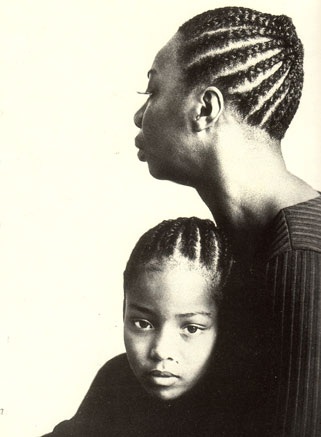 Nina’s version with horns and overdubbed voices is very, very subtle, surprisingly subtle for a song that is so forward in its lyrical meaning. The staccato attack of the voices contrasts with the lushness of the brass voiced in the lower register. Just compare the way the word “black” is enunciated on Nina’s version to the way it is sung on the other versions. Put on ear phones and hear Nina’s overdub shadowing her lead voice. The way she controls her vibrato, strong enough to be felt, but light enough that it does not call attention to itself. It’s truly masterful.
Nina’s version was recorded when we were young. We felt confident that we would change the world, and if not the world, at the very least, we would change America. And that even if we were not successful in creating all the change we desired, we would certainly give them a run for the money, we would challenge them and they would know they had had a hell of a fight on their hands. We were confident of that. Why? Well, because: we were young, gifted and black.
You can hear that in all of these versions.
Today, it’s over forty years later. The hard truth is that although there are many, many young black people building careers in commerce and entertainment, there is nevertheless a serious question whether most of today’s youth feel truly young, gifted and black.
Blinging, tossing up diamonds, making benjamins seems to be the prevailing ethos, hence, the caustic quote that opens this section.
Donny is gone. Nina is gone. Master Weldon is gone. Aretha, damn near silent. We are no longer young. And it’s a hard time to be elderly, gifted and black. But we play these songs and, for a few minutes at least, we revisit a time when we rejoiced in the spiritual celebration of our hip, young, black selves. A time when this song was our song.
—Kalamu ya Salaam
The depth and breadth of Weldon's work...is staggering
Nina’s version with horns and overdubbed voices is very, very subtle, surprisingly subtle for a song that is so forward in its lyrical meaning. The staccato attack of the voices contrasts with the lushness of the brass voiced in the lower register. Just compare the way the word “black” is enunciated on Nina’s version to the way it is sung on the other versions. Put on ear phones and hear Nina’s overdub shadowing her lead voice. The way she controls her vibrato, strong enough to be felt, but light enough that it does not call attention to itself. It’s truly masterful.
Nina’s version was recorded when we were young. We felt confident that we would change the world, and if not the world, at the very least, we would change America. And that even if we were not successful in creating all the change we desired, we would certainly give them a run for the money, we would challenge them and they would know they had had a hell of a fight on their hands. We were confident of that. Why? Well, because: we were young, gifted and black.
You can hear that in all of these versions.
Today, it’s over forty years later. The hard truth is that although there are many, many young black people building careers in commerce and entertainment, there is nevertheless a serious question whether most of today’s youth feel truly young, gifted and black.
Blinging, tossing up diamonds, making benjamins seems to be the prevailing ethos, hence, the caustic quote that opens this section.
Donny is gone. Nina is gone. Master Weldon is gone. Aretha, damn near silent. We are no longer young. And it’s a hard time to be elderly, gifted and black. But we play these songs and, for a few minutes at least, we revisit a time when we rejoiced in the spiritual celebration of our hip, young, black selves. A time when this song was our song.
—Kalamu ya Salaam
The depth and breadth of Weldon's work...is staggering
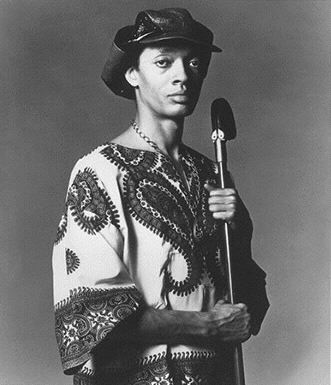 I didn't know Weldon Irvine wrote the lyrics to "Young, Gifted And Black." Actually, I wasn't too sure of who Weldon Irvine was, period, except that his name comes up again and again in the liner notes to hip-hop records as a sample source, keyboardist, collaborater, etc. Coincidentally, the quote I led off with last week (from Talib Kweli) is from "Africa Dream," one of the many hip-hop songs that Weldon played on. I also remember hearing about the recent death by suicide of a playwriter named Weldon Irvine, but somehow, I didn't put the name together with the Weldon Irvine I knew from hip-hop circles.
Kalamu's writeup piqued my interest; I just finished reading a few bios on Mr. Irvine. I have to say, the depth and breadth of Weldon's work, musically and politically, is staggering. It amazes me that I didn't already know about the many aspects of his career. And, not to make light of everything he did in the past, but I am particularly (and selfishly?) impressed by the work he was doing at the time of his death: working with young people, trying to share some of his wisdom, some of his passion for fusing the musical and the political, some of his penchant for speaking his mind even when he knew it would cost him in the end.
RIP, Brother Irvine. You may be gone, but you can rest knowing that you did something most of us can only aspire to do: that is, you made a real, tangible difference to the lives of others.
—Mtume ya Salaam
I didn't know Weldon Irvine wrote the lyrics to "Young, Gifted And Black." Actually, I wasn't too sure of who Weldon Irvine was, period, except that his name comes up again and again in the liner notes to hip-hop records as a sample source, keyboardist, collaborater, etc. Coincidentally, the quote I led off with last week (from Talib Kweli) is from "Africa Dream," one of the many hip-hop songs that Weldon played on. I also remember hearing about the recent death by suicide of a playwriter named Weldon Irvine, but somehow, I didn't put the name together with the Weldon Irvine I knew from hip-hop circles.
Kalamu's writeup piqued my interest; I just finished reading a few bios on Mr. Irvine. I have to say, the depth and breadth of Weldon's work, musically and politically, is staggering. It amazes me that I didn't already know about the many aspects of his career. And, not to make light of everything he did in the past, but I am particularly (and selfishly?) impressed by the work he was doing at the time of his death: working with young people, trying to share some of his wisdom, some of his passion for fusing the musical and the political, some of his penchant for speaking his mind even when he knew it would cost him in the end.
RIP, Brother Irvine. You may be gone, but you can rest knowing that you did something most of us can only aspire to do: that is, you made a real, tangible difference to the lives of others.
—Mtume ya Salaam
This entry was posted on Sunday, November 6th, 2005 at 4:33 am and is filed under Cover. You can follow any responses to this entry through the RSS 2.0 feed. You can leave a response, or trackback from your own site.
3 Responses to “DONNY HATHAWAY / “Young, Gifted and Black””
November 20th, 2005 at 5:36 pm
Silence here? It’s not possible. Donny Hathaway’s version of “Young Gifted and Black” is masterful and passionate and every time I listen to it–to him period–I have to sit down, have to, because he stops me in my tracks, freezes everything around me. This song is where we can go if we believe.
March 14th, 2008 at 2:33 pm
I came looking for more on Weldon Irving, and left with that and more- the images on this site are stunning. I’ve been listening to the alternative hip-hop album, Black Star, for which Irving played an opening rift in “Astronomy.” I wanted to leave some of the lyrics here for you “Black like my baby girl’s stare
Black like the veil that the muslimina wear
Black like the planet that they fear, why they scared?
Black like the slave ship that later brought us here
Black like the cheeks that are roadways for tears
that leave black faces well traveled with years.” I wanted to suggest that although Weldon Irvine’s obvious legacy may be “Young, Gifted and Black” and his work with Nina, his influence as a mentor in alternative hip-hop is alive and present, a living legacy.
June 13th, 2008 at 5:59 pm
Like KW, I was led here in search of more info on Master Weldon. I am touched by the deep humility and sense of compassion that resonates in his music. I am thankful for his courage. Saddened by the thought of the sense of isolation he seemed to have felt. Inspired by the music that allows his spirit to live on. It was not in vain. May his soul, along with Brother Donny, Sister Nina, and nameless others, know peace.
Leave a Reply
| top |